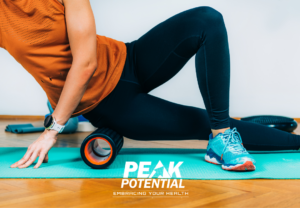What you do after the gym matters just as much as what you did during your workout. That’s because the post workout recovery period is a time when your body builds lean muscle mass and repairs any damage.
If you shortchange yourself, you could wind up decreasing performance, increasing injury risk, or even gaining body fat. And all these things are counterproductive to the reason you exercise in the first place.
The good news it, you can ensure your workouts deliver the results you want without causing any collateral damage. Add in a few of these suggestions after you exercise to encourage maximum recovery and restoration.
-
Drink Water
Hydration is absolutely essential and the first place we all should start. Dehydrated tissues are more likely to be injured. Drink water before, during, and after exercise to keep your muscles hydrated and supple.
-
Replace Potassium
Perspiring tends to deplete your potassium stores and restoring this balance is key to muscle recovery. Catch up on this important mineral by adding some avocado to your smoothie, or drinking a balanced electrolyte replacement.
-
Spread out Protein
Only about 20-30 grams of protein can be used by your body at a given time. You will be able to digest protein and use it for muscle repair most efficiently if you consume these target amounts throughout the day.
-
Increase Vitamin D
Many adults have Vitamin D deficiencies that can slow down recovery. You can increase your levels with daily sun exposure or supplement as needed during darker times of the year.
-
Stretch it Out
End your workout with some slow gentle movements and include stretches in your cool down period. Include stretching on your “off day” as well in order to assist in recovery. You can read more about stretching here -> Do I Really Need to Stretch After My Workouts?
-
Sleep Well
The majority of recovery and healing occur while you are in deep sleep. Go to bed and get up on a consistent schedule and aim for at least 7 hours of sleep each night. The natural sleep support found in Sleep Strips will help your body relax and get into those deep sleep states if this is an area you struggle with.
-
Manage Stress
Chronic stress can cause inflammation and impair the recovery process. Find relaxation practices that work for you, like meditation or even short bouts of deep breathing throughout the day.
-
Roll and Knead
You may have heard of myofascial release that reduces muscle soreness and promotes healing by kneading the connective tissues surrounding your muscles. It’s one of the principles behind foam rolling.
-
Add in Anti-Inflammatories
Naturally anti-inflammatory compounds like those found in fish, nuts, and berries can support recovery. Supplementing with quality omega-3’s, ginger, and turmeric will give you an extra boost.
-
Work with an Expert
If you have a history of pain, injury, or slow recovery working with an expert to make a plan that best fits your goals and needs is your next best step. Our doctors of physical therapy can help you not only maximize your recovery but make sure you are making the most out of the energy you are investing in your workouts.
You can talk with an expert today at no cost or obligation. Click the link below to set up a call.
Adequate rest and recovery strategies make your next workout more effective and make you less prone to injury. Plan ahead so you can give your body the nutrients and care it needs to be strong and healthy for a lifetime.
If you have additional questions about fueling your body for optimal recovery, you can schedule a Free Health Coaching Consult with our Certified Nutrition Specialist at the link below. This is a critical piece to the recovery puzzle we can not neglect!




